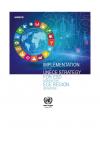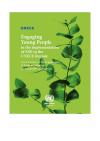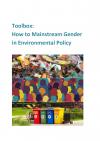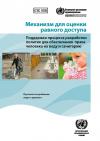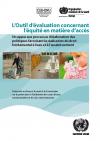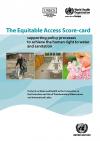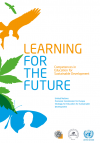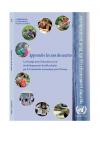Publications
Displaying Results 1 - 13 of 13
- English
Fourth cycle of EPRs: advancing environmental performance in the region and beyond. Transforming Planet.
This calendar promotes the fourth cycle of UNECE EPRs, based on the document adopted by the Committee on Environmental Policy and subsequent decisions made, as well as ministerial decisions.
Three EPR cycles have already taken place. Printed copies of EPR publications may be
- English
This evaluation report provides a summary of the progress, challenges and achievements of the Economic Commission for Europe (ECE) member States from 2017 to 2019 in implementing the UNECE Strategy for Education for Sustainable Development (ESD). The report reviews the data collected through national implementation reports submitted by member States at the end of the fourth phase of the Strategy'
- English
This publication provides an overview of good practice programs and initiatives aimed at supporting and empowering youth participation in education for sustainable development (ESD) and in the implementation of the UNECE Strategy for ESD in its member States. It includes best practices, theoretical articles on youth participation and methodologies to support inclusion of youth in ESD and
- English
This toolbox has been developed to assist the Ministry of Environmental Protection of Serbia in integrating gender equality considerations into various sectoral programmes and policies. It provides a practical and workable approach to gender mainstreaming in environmental policy. It has been applied to two programmes chosen by the Ministry of Environmental Protection: the National Waste
- English
Ten Years of the UNECE Strategy for Education for Development - Evaluation report on the implementation of the UNECE Strategy for Education for Sustainable Development from 2005 to 2015. This evaluation report summarises the progress, challenges and achievements of ECE member States from 2005 to 2015 in implementing the UNECE Strategy for ESD. The report reviews
- Pусский
Протокол по проблемам воды и здоровья предусматривает, что, при достижении цели обеспечения доступа к питьевой воде и предоставления санитарных услуг для всех, соответствующее внимание должно быть уделено равноправному доступу всего населения к этим услугам.
В публикации «Никто не обойден вниманием: Передовые практики обеспечения равного доступа к воде и санитарии» было отмечено три необходимых
- Français
Le Protocole sur l’eau et la santé stipule que dans la poursuite des objectifs de l’accès à l’eau potable et l’assainissement pour tous, une attention particulière doit être accordée pour garantir à tous les membres de la population un accès équitable à ces services. La publication Aucun laissé-pour-compte:
- English
The Protocol on Water and Health specifies that in pursuing the aims of access to drinking water and provision of sanitation for everyone, special consideration should be paid to ensure equitable access to these services for all members of the population.
The publication No One Left Behind: good practices to
- English
Empowering educators for a sustainable future: Tools for policy and practice workshops on competences in education for sustainable developmentThis publication builts on the Learning for the Future: Competences in Education for Sustainable Development (ECE/CEP/AC.13/2011/6) report, drafted by the UNECE Expert Group on Competences, which gives advice on: (a) what competences educators need in
- English
Learning for the future – competences for education for sustainable developmentThe competences in ESD described in this document are those of educators and not of learners, although both are intricately related. They go beyond the competences that individual educators would have in order to provide a good quality education
- Français
The UNECE Strategy for ESD is a policy tool that helps the countries of the region to introduce and promote ESD in national formal, non-formal and informal education in their respective countries. It aims at developing policy, regulatory and operational frameworks to support ESD, equipping educators with the necessary competences, ensuring that adequate tools and materials for ESD are accessible
- English
The UNECE Strategy for ESD is a policy tool that helps the countries of the region to introduce and promote ESD in national formal, non-formal and informal education in their respective countries. It aims at developing policy, regulatory and operational frameworks to support ESD, equipping educators with the necessary competences, ensuring that adequate tools and materials for ESD are accessible
- English
“Learning from each other” is the main theme of this collection of GoodPractices in Education for Sustainable Development in the UNECE region. Thesegood practices and shared experiences, which were provided by a range of different stakeholders, are concrete examples of successful implementation of ESD in different fields and sectors, from the political to the school level, and including


